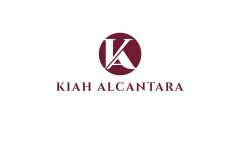A framework is a basic structure underlying a ,system, concept or text. New York City College of Technology designed a conceptual framework for the teacher preparation program, which stem from three themes. Candidates are expected to fulfil courses that develop and improve their professional and technical skills, in order to diversify the subject being taught.
The first theme is professionalism; the program caters to candidates becoming educators who are able to use the knowledge and skills gained in their field and use varying teaching strategies to ensure student learning.
The second theme is technology; as the world we live immersed in technology, being well versed in technological equipment and incorporating it in students learning is useful and important for student success.
Lastly diversity; candidates in career and technical education spend time refining pedagogy and reflecting on teaching practices to recognize, reflect and add value to the classroom diversity.
Candidates are expected to take courses as well as partake in activities and complete assessments that demonstrate competency in general knowledge, content knowledge and skills, pedagogical knowledge and skills, competency in the use of technology, caring dispositions, reflective practice and sensitivity to diversity.
Descriptions of the seven performance expectations are as followed:
General Knowledge:
In order to demonstrate a foundation in general knowledge, the candidate participates in courses that deepen their understanding and use of literature, philosophy, mathematics, and social sciences in order to function in the community/culture that surrounds them.
I had the ability to demonstrate this competency by completing the coursework that fulfills the ‘required common core’, in which all students of the college must take to gain or test basic skills. These courses are : English1101 and 1102, Mathematical and Quantitative reasoning and Biology. As well as passing my CQST Exam.
Content Knowledge and Skills
This expectation means that candidates should have developed skills and techniques to be able to deliver the information and content knowledge to students in an efficient manner that promotes student learning and growth. In the cosmetology field, content knowledge and skills are
I have demonstrated this competency by passing the written and practical National Occupational Competency Testing Institute in Cosmetology, as well as the New York State licensing exam.
The courses that have allowed me to demonstrate this content knowledge and skills are internship in CTE and student teaching.
Pedagogical knowledge and skills
This refers to being able to design, plan, implement and manage(practice organizational techniques) in the instructional process in a safe and nurturing environment. While using methods, assessments, techniques and resources to provide each student with appropriate levels of scaffolding for their learning type. Ability to plan, implement and assess instrurction.
I have met this competency by partaking in the courses; Laboratory Organization and Management of Instruction(EDU2354), Methods of Teaching in Career and Technical Education(EDU2362) and Assessing Student Outcomes(EDU3630).
Competency in the use of Technology
Competency in the use of technology enhances the candidate’s expertise in the computing literacy field. Computer technology now plays a huge part in instructional process and student learning and in order to facilitate student learning, candidates learn to plan, design and implement pedagogical skills.
I met this competency through taking the course Computers in Education (EDU3640).
Caring Disposition
Being the educator in the classroom does not make you a figure of authority, keeping an appropriate personal and interpersonal relationship with students that streams from a place of respect, is important. Effective instruction begins when you understand learning theories and principles.
I have fulfilled the caring disposition expectation when I took the course, Human learning and instruction(EDU3610), Introduction to Psychology(PSY1101), Child and Adolescent development(EDU2610) and Elements of Sociology(SOC1101).
Reflective Practice
The purpose of reflective practice is so the candidate has continuous improvement and lifelong learning. Being able to analyze, evaluate and reflect on teaching experiences help the individual make room for constant improvement on their own or with peers.
I have completed this practice through the courses, internship in career and technology teacher education(EDU3681), Professional Development Seminar(EDU4600) and Supervised Student Teaching in Career and Technology Education.
Sensitivity to Diversity
The world we live in is filled with a variety of cultures which make us all different in our own ways. Being aware of this in the classroom is an essential part of being able to create a safe and comfortable environment for students to learn and grow.
The courses that allowed me to meet these competencies are Methods and Material for Special Needs(EDU2455), Sociology of Education(SOC2380) and the US Experience in its Diversity course(American Literature).



